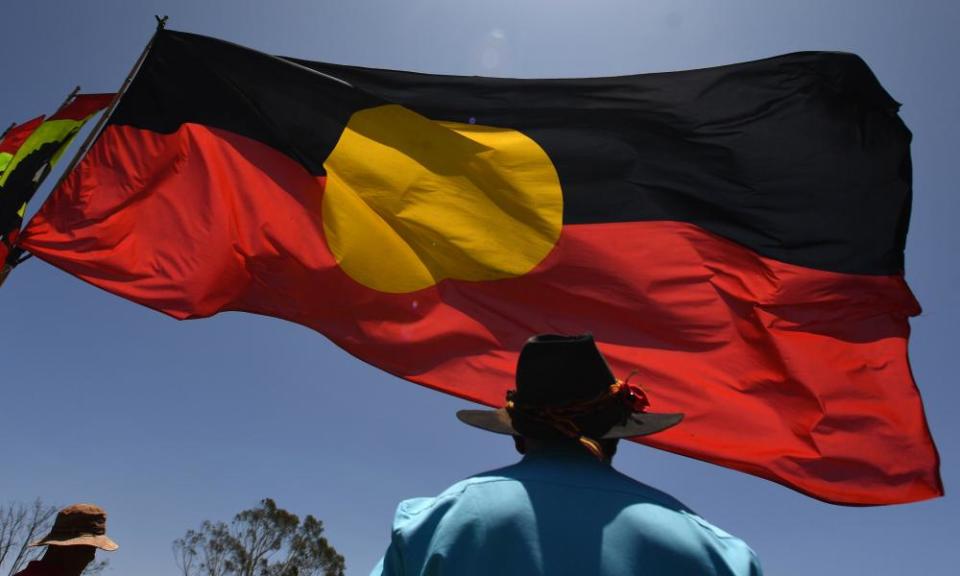More Australians want an Indigenous voice protected in constitution, survey suggests

A growing number of Australians believe it is important to protect an Indigenous voice in the constitution so it can’t be removed by future governments, according to the latest two-year survey of attitudes to reconciliation.
The Reconciliation Barometer 2020 found that 81% of the general community (up from 77% in 2018) and 88% of Aboriginal and Torres Strait Islander people (up from 86% in 2018) support a constitutionally-enshrined representative Indigenous body.
But more than half (52%) of Aboriginal and Torres Strait Islander people have experienced at least one form of racial prejudice in the past six months. The report said Aboriginal and Torres Strait Islander people’s experiences of race-based prejudice had steadily worsened over the past six years.
The most common forms of racial violence included verbal or social media abuse, being prevented from renting or buying property and being refused entry to venues or service in shops.
Related: Discovery and survival: an 1872 Cape York expedition revisited – and the Girramay man who saved it
The report said the “stark increase” in racial discrimination in 2020 may be a sign of how Aboriginal and Torres Strait Islander people have been affected by the Covid-19 pandemic and the policing of lockdowns, creating stress and tensions in communities.
Some 60% of Aboriginal and Torres Strait Islander respondents and 43% of non-Indigenous respondents agreed that “Australia is a racist country”.
The Reconciliation Australia chief executive, Karen Mundine, said the results indicated the Black Lives Matter movement may have made respondents more aware of the pervasiveness of racism in Australian life.
“In 2020 we have seen increasing political and social polarisation due to uncertainty and disruption from Covid-19,” Mundine said.
“The heightened awareness and sentiments around the global and local Black Lives Matter movements have translated into our research, as would be expected.”
Almost 90% of the general community and 93% of Aboriginal and Torres Strait Islander people also said it was important to undertake formal truth-telling processes about Australian history.
Mundine said community attitudes to self-determination, representation and treaty-making were well ahead of those held by political leaders.
“This provides a basis for demanding more of our political leaders,” Mundine said. “Change doesn’t happen without governments, parliaments, corporate and civil society, and the broader community playing their part.”
The report said that calls in the Uluru Statement from the Heart, including for a constitutionally enshrined voice to parliament, should be supported by parliaments, corporate and civil society, as well as the broader community.

 Yahoo Finance
Yahoo Finance 